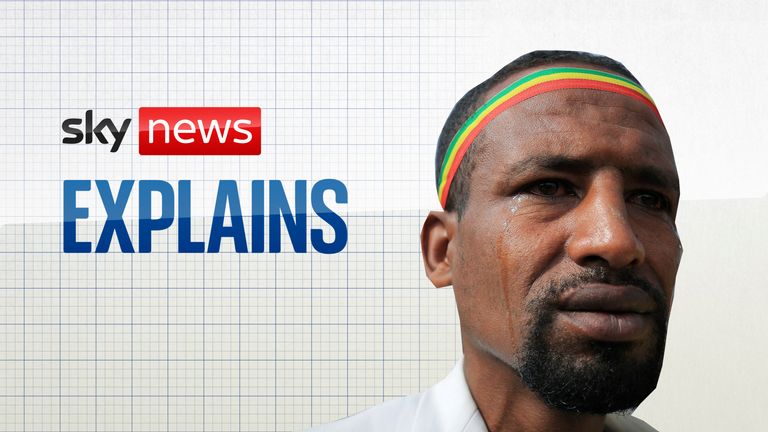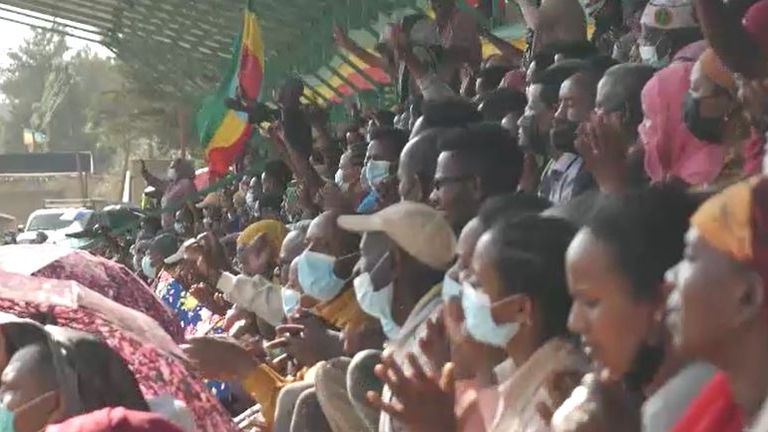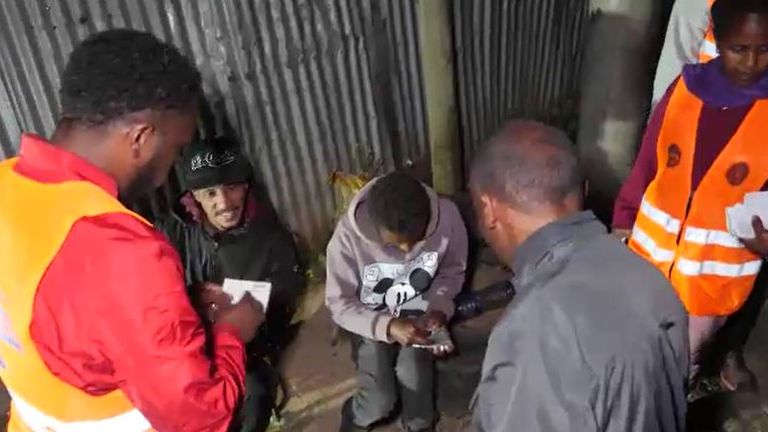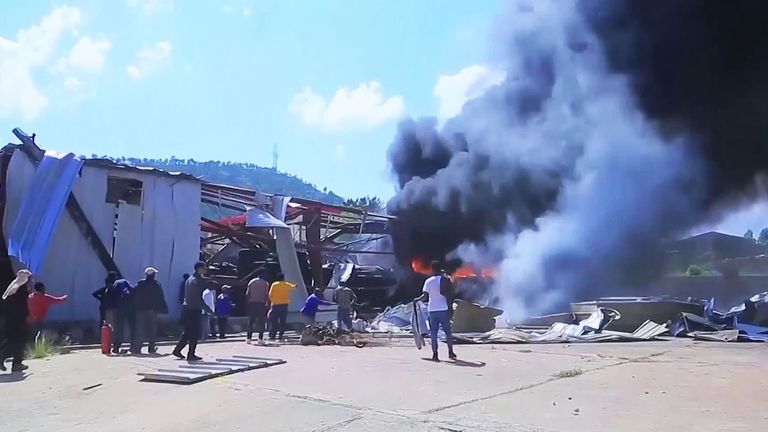Ethiopia: Volunteers join police patrols as thousands sign up to defend Addis Ababa from advancing Tigrayans
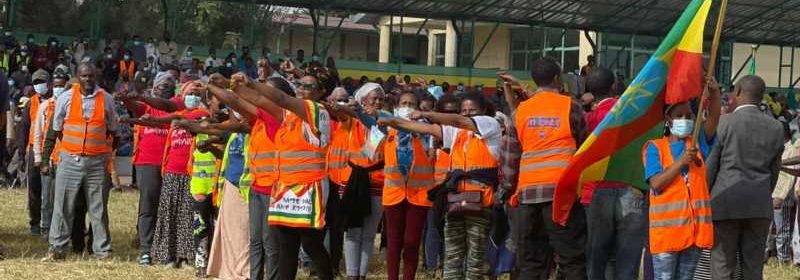
On a sunburnt playing field at an Addis Ababa school, where hundreds of unlikely soldiers tried to march in time, I watched a sergeant from the police force trying to keep his cool.
“To the left, turn to the left,” he said to one ad-hoc battalion of city residents, who were wearing bright orange bibs.
“Ok, that’s good, that’s good,” he added, as they bobbled and tripped down an athletics track.
These volunteers, who made up just a few of some 7,000 recruits in this part of Addis Ababa, have signed themselves up to defend the capital – with similar “passing-out parades” being held in every single district.
The participants have completed two days of “motivational training” and been taken up to the military front or asked to join security patrols in their local neighbourhoods.
Yet it was the boisterous crowd who had packed out the playing field’s stands that may prove a bigger obstacle for the enemy.
The conflict began last November, when the Ethiopian Prime Minister, Abiy Ahmed, moved his troops into the region of Tigray, after tensions with the Tigray People’s Liberation Front (TPLF) had reached boiling point.
Abiy quickly declared victory over the territory’s leadership but the TPLF’s battle-hardened fighters have pushed the Ethiopian military back in a war that has been marked by atrocities on both sides.
Now the TPLF lies just a couple of hundred kilometres from the capital’s northern suburbs.
Although taking the city would pose a real military headache.
The Tigrayans form a small minority in Ethiopia – the region makes up just 6% of the population – and they may not have the numbers to hold it.
“Ethiopia will prevail, the junta will be destroyed,” said the city parliament’s speaker, Buzena Abdulkadir, slapping the TPLF with a derogatory nickname.
“They are very small in number, we have too many people for them,” she cried.
For many in attendance at the event in Arada, international journalists do not rank much higher than members of the TPLF and we found ourselves accused of supporting the rebels.
A retired soldier called Demsatchew Seyoum stopped to talk to us. He said he would soon be fighting on the front.
“We are fighting with the TPLF (at the) front and we are fighting the international community. They are fighting us with false propaganda.”
“Who is fighting you with propaganda?” I asked.
“The media who are managed by the intelligence centres.”
“There is an international conspiracy to put the TPLF in power?” I replied.
“Of course, of course.”
As the fighting draws closer to the capital, the powers of the police have been increased with many volunteers now supporting them on round-the-clock patrols.
The volunteers have little training – and no authority in law – but they are tasked with rooting out the TPLF.
“Have you found any members?” I asked a community organiser called Mesfin Zerfu.
“Yes, we found sympathisers and members of the TPLF, we found them hiding in a house together. All of them were taken into custody.”
It is something that worries the UN’s Commissioner for Human Rights.
The government has suspended basic protections under a new state of emergency and the majority of those detained are ethnic Tigrayans.
The UN says more than 1,000 have been locked up in the past two weeks.
However, a prominent Tigrayan told us the number is far, far higher than that.
“You can’t use your language outside, if you use, you will be detained, you’ll be taken. All (Tigrayans) are considered TPLF, whether you have other ideas or political opinions, blah, blah, you’ll be considered TPLF.”
In this fight to the death now tearing through Ethiopia, these ethnic divisions will be difficult to bridge.
Source: Read Full Article

